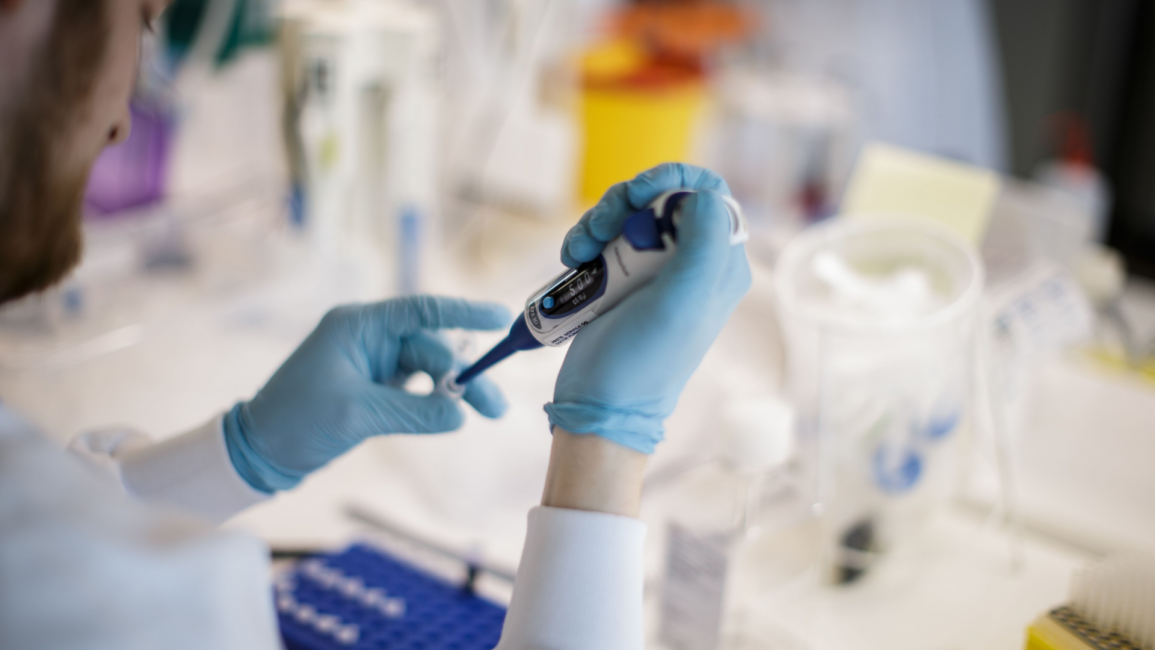HRW warns of 'gaps' in Lebanon Covid vaccine drive
The US-based rights group cited particular concern around the transparency, accessibility, and misinformation surrounding the drive to vaccinate Lebanon's population.
"The government's stated commitment to an inclusive vaccination strategy is positive, but the real test will be translating the plan into action," said Aya Majzoub, Human Rights Watch's Lebanon researcher.
"It is critical for leaders to clearly communicate the government’s vaccination strategy, ensure that vaccine access is not determined by political connections or socio-economic status, and apply transparent, evidence-based distribution criteria equally to everyone in Lebanon," Majzoub added in the statement.
After speaking with frontline healthcare workers, the rights group said there was insufficient information over how the programme will be rolled out.
Hospital officials told HRW they had not yet received any instructions from the government on how to operationalise the strategy.
Twitter Post
|
Dr. Georges Ghanem, the chief medical officer of the LAU Medical Center-Rizk Hospital, one of Lebanon's largest private hospitals and one of the 42 vaccination centres, told HRW that a clear operational roadmap for the vaccination campaign remains missing.
"We have this broad plan, which is a plan of principles, but not an operational, on-the-ground plan," Dr. Ghanem said.
Ghanem added that they still do not know what software vaccination centres will use to register and schedule appointments and when staff members will be trained to use it.
There is also little information over how the private sector, which the government said will be allowed to import vaccines, will fit into the national program.
"We have so far not received an implementation plan," Dr. Hassan Wazni, director-general of the Nabatieh Governmental Hospital in south Lebanon and one of the vaccination centres, told HRW.
He said the health ministry had not yet provided lists of people prioritised for vaccination, the number of vaccines the hospital will receive and the number of expected recipients, which vaccine it will receive first, and whether the vaccine will be stored in Beirut or at the hospital.
Hospital officials also said they still do not know who to go to with queries and complaints, especially with regards to adverse reactions, shortages, discrimination, corruption, or misinformation.
In its statement, HRW recommended that the government urgently addresses "gaps in its strategy to inoculate the population", as it is now a matter of weeks before the vaccination drive begins.
HRW also urged Lebanese authorities to ensure non-discriminatory treatment in its vaccination programme, ensuring that everyone eligible for the vaccine gets it, regardless of national origin or residency status.
Caretaker Health Minister Hamad Hassan announced earlier this week that everyone in Lebanon will be eligible for the vaccine, as the country aims to vaccinate 80% of the population by the end of this year.
Lebanon has recorded over 114,000 Covid-19 cases and 2,477 Covid-19 related deaths as of January 27.
The health sector had already been in crisis before the pandemic began, which has lead HRW to declare it "on the brink of collapse" as the country scrambles to tackle the coronavirus outbreak.
Follow us on Facebook, Twitter and Instagram to stay connected



